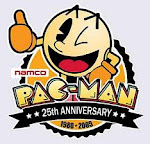Looking back at the 1980s is to peer into a different world. The computer revolution was beginning, but the World Wide Web wasn't even invented until 1989, and not up and running until the early '90s, so what did we do in place of the things so many modern day 'clever' folk take for granted?
Well...
Let's begin...
Wow, Christmas 1982 - and if you were terribly posh and a complete nerd you might have had a Christmas like this. But it's not likely.
Fact Checkers - they check the facts so you don't have to. They back their own viewpoints and often the Establishment, pouring ridicule on anything outside of that. Say anything outside of the narrative? You're a conspiracy theorist - and all right-minded folk must shun you. You're 'far right' and, no doubt, your bum smells. Your accuser's, of course, does not.
In the 1980s: You formed your own opinions. You read various things. You might have been absolutely hidebound in your opinions, but many people were less comfortable, more investigative, more opinionated. In the main, we didn't want people to tell us what to think. We wanted to find out for ourselves. And we didn't just trust governments or organisations like the UN - which is a lot of the problem now. People can read absolutely irrefutable facts, but there seems to be some sort of cognitive dissonance in applying them when 'experts' say something else. The official narrative has to be adhered to.
Rating (in my opinion): 1980s: 10, 21st Century: 0.
Usenet began in 1980 as a tiny concern for university geeks and professors. It can't really be called a forerunner to the Web, but it did have newsgroups which exchanged fascinating information. Read the above. See what I mean? Most of the world was blissfully unaware. We took a look here.
Wikipedia: What an odd idea! Anybody can write anything? But editors are on hand to correct false information? Um, usually only if it fits their own agenda. A lot of Wikipedia is unreadable. The SJWs rule it and it's propaganda writ large. And 1980s = BAD! Very bad! It's rather like a schoolkid's effort at an encyclopedia.
Now, I know the arguments: 'Oh, yes, but Wikipedia contains links to dependable information!' Does it? Not in a lot of my experiences with the site it doesn't! It cherry-picks and blocks dissenting voices and there is nothing balanced about it when it comes to issues like Feminism at all. In fact, the article on Feminism is like a brain washing lesson in the ideology. And, guess what? Google and the like include a little panel on searches with Wikipedia articles linked! So, many people will be innocently drawn to the site. BONKERS!
Wikipedia is not an encyclopedia at all. And the lame brained-ness of people who use it at all is one of the most worrying early 21st Century online trends - in my opinion.
In the 1980s: People read things in encyclopedias, and read other books. People agreed or disagreed with the authors. People asked questions. People didn't tell other people to 'stand away from their rage totems' if they disliked their discussion of misandry or whatever. People discussed, they argued, they sometimes had a punch-up. But they didn't face a bunch of sheeple bleating at them and blocking them, sheeple fully convinced of their own goodness, and making sure other views don't get a hearing, whilst theirs - often highly flawed and even bigoted - do, and become the narrative.
Rating: 1980s: 10, 21st Century: 0.
I'll return to this theme at some point, 'cos it's dead interesting, don't you think? No? Oh well, we're glad you have your own views on the subject!
See you soon. xxx






















